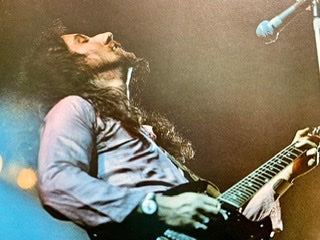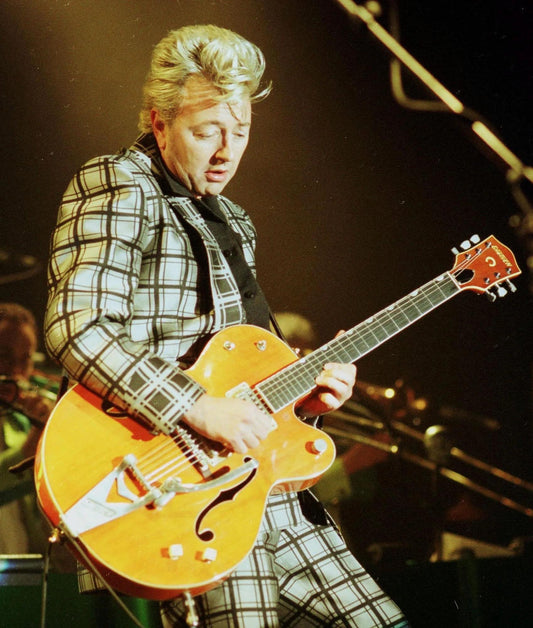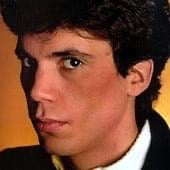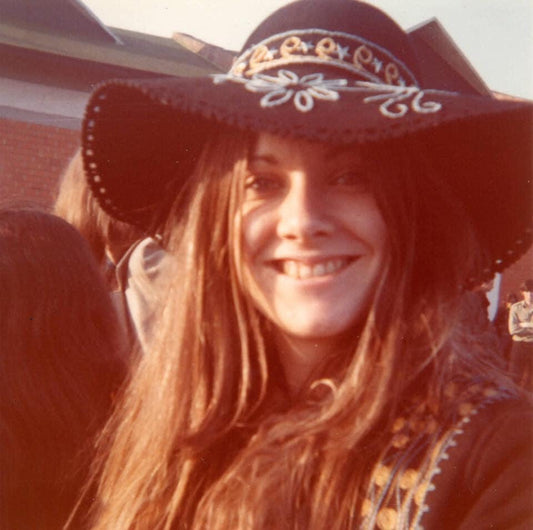
UNVERWÜSTLICH: URIAH-HEEP-GITARRIST MICK BOX WIRD 75
Jens-Uwe BerndtTeilen
Wie er die Töne aus der Luft greift und in seine Gitarre wirft, ist legendär. Ebenso seine seit Jahrzehnten unveränderter Haarpracht, die lediglich in das Weiß des Alters überging: Uriah-Heep-Gitarrist Mick Box wird am 9. Juni 75 Jahre alt.
1969 gehörte er zur Gründungsbesetzung von Uriah Heep. Heute ist mittlerweile das einzige verbliebene Mitglied aus den Anfangstagen. Zu Beginn der Siebziger positionierten sich Uriah inmitten der ersten britischen Heavy-Metal-Welle neben Deep Purple, Black Sabbath, Led Zeppelin usw., hatten aber immer schon Folk-Elemente, Progressives und Orchestrales im Repertoire. Uriah Heep hatten einige Sängerwechsel zu überstehen, konnten diese Position 1986 mit Bernie Shaw, ihrem sechsten Vokalisten, aber endgültig besetzen. Mick Box führte die Band spätestens nach dem Weggang von Keyboarder, Gitarrist und Sänger Ken Hensley 1980 allein an und entwickelte sich zu deren Hauptsongwriter. Auch prägte er mit seinem Gitarrensound den Stil der Gruppe von Beginn an maßgeblich.
The way he grabs notes out of the air and throws them into his guitar is legendary. So is his hair, unchanged for decades, which merely faded into the white of old age: Uriah Heep guitarist Mick Box will turn 75 on June 9.
In 1969 he was part of the founding line-up of Uriah Heep. Today is now the only remaining member from the early days. In the early seventies, Uriah positioned themselves in the midst of the first British Heavy Metal wave alongside Deep Purple, Black Sabbath, Led Zeppelin, etc., but always had Folk elements, progressives and orchestral in their repertoire. Uriah Heep had to endure several singer changes, but were able to finally fill this position in 1986 with Bernie Shaw, their sixth vocalist. Mick Box led the band alone at the latest after the departure of keyboardist, guitarist and singer Ken Hensley in 1980 and developed into their main songwriter. He also significantly shaped the style of the group from the beginning with his guitar sound.
1969 gehörte er zur Gründungsbesetzung von Uriah Heep. Heute ist mittlerweile das einzige verbliebene Mitglied aus den Anfangstagen. Zu Beginn der Siebziger positionierten sich Uriah inmitten der ersten britischen Heavy-Metal-Welle neben Deep Purple, Black Sabbath, Led Zeppelin usw., hatten aber immer schon Folk-Elemente, Progressives und Orchestrales im Repertoire. Uriah Heep hatten einige Sängerwechsel zu überstehen, konnten diese Position 1986 mit Bernie Shaw, ihrem sechsten Vokalisten, aber endgültig besetzen. Mick Box führte die Band spätestens nach dem Weggang von Keyboarder, Gitarrist und Sänger Ken Hensley 1980 allein an und entwickelte sich zu deren Hauptsongwriter. Auch prägte er mit seinem Gitarrensound den Stil der Gruppe von Beginn an maßgeblich.
The way he grabs notes out of the air and throws them into his guitar is legendary. So is his hair, unchanged for decades, which merely faded into the white of old age: Uriah Heep guitarist Mick Box will turn 75 on June 9.
In 1969 he was part of the founding line-up of Uriah Heep. Today is now the only remaining member from the early days. In the early seventies, Uriah positioned themselves in the midst of the first British Heavy Metal wave alongside Deep Purple, Black Sabbath, Led Zeppelin, etc., but always had Folk elements, progressives and orchestral in their repertoire. Uriah Heep had to endure several singer changes, but were able to finally fill this position in 1986 with Bernie Shaw, their sixth vocalist. Mick Box led the band alone at the latest after the departure of keyboardist, guitarist and singer Ken Hensley in 1980 and developed into their main songwriter. He also significantly shaped the style of the group from the beginning with his guitar sound.




